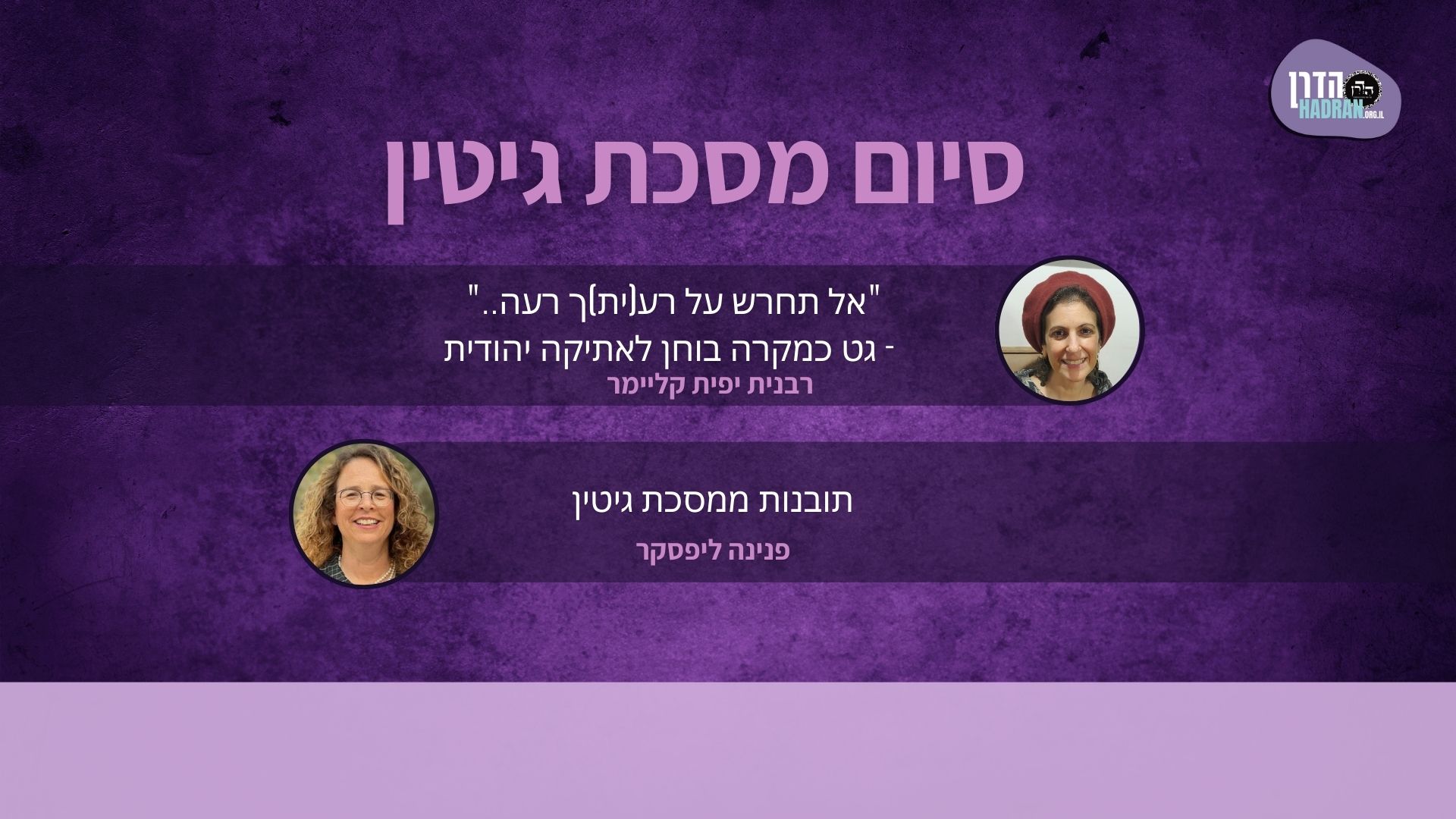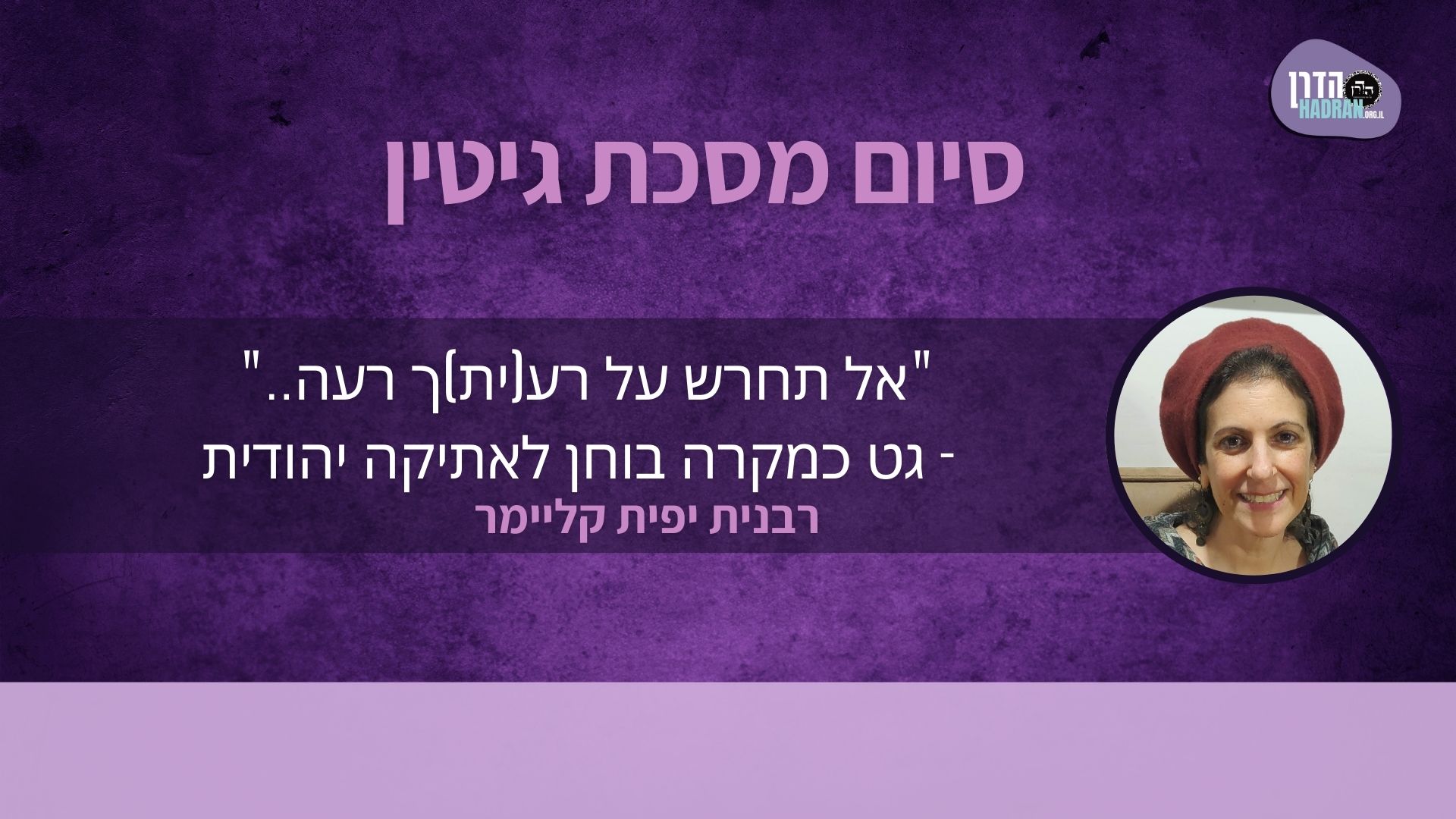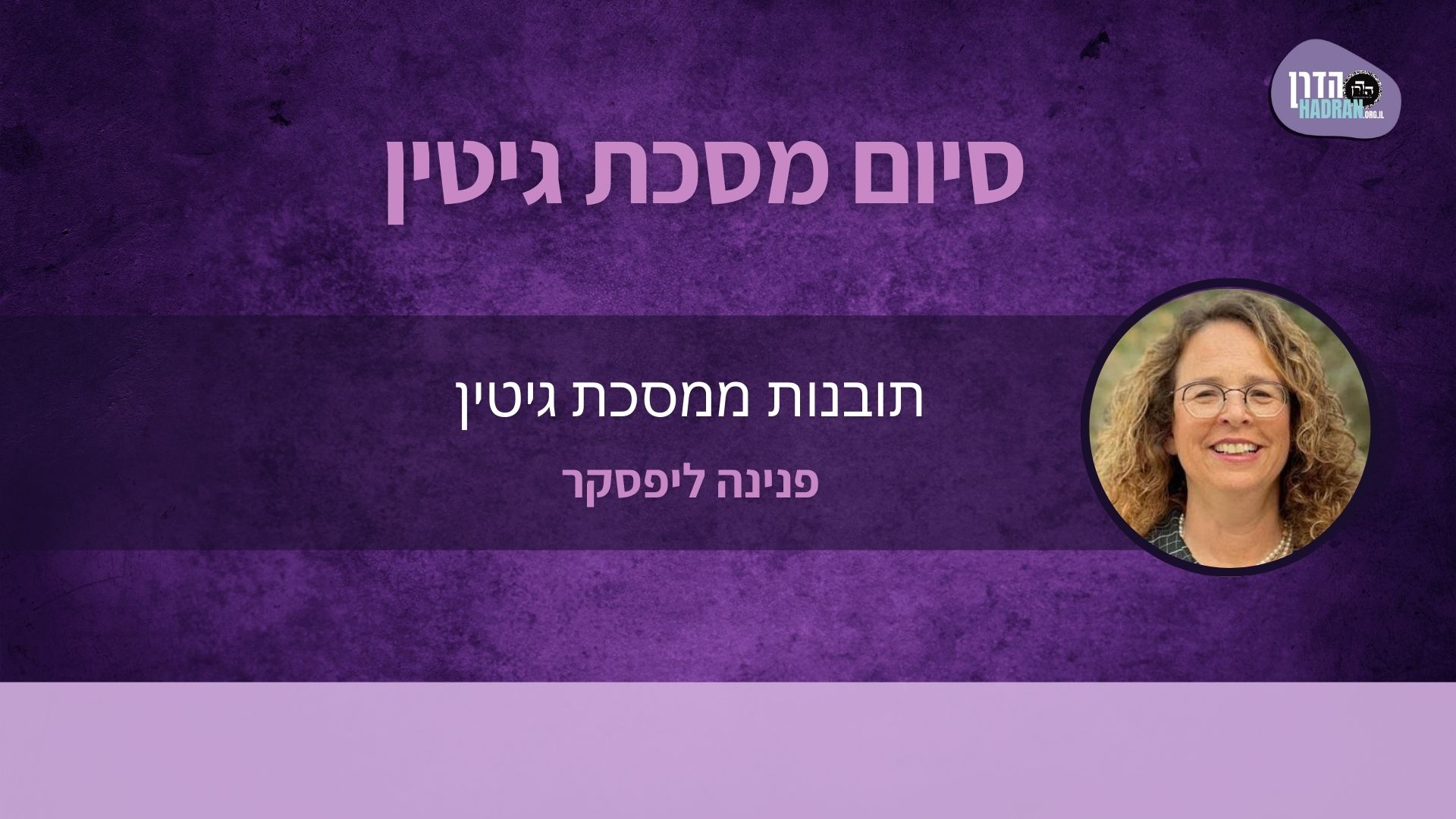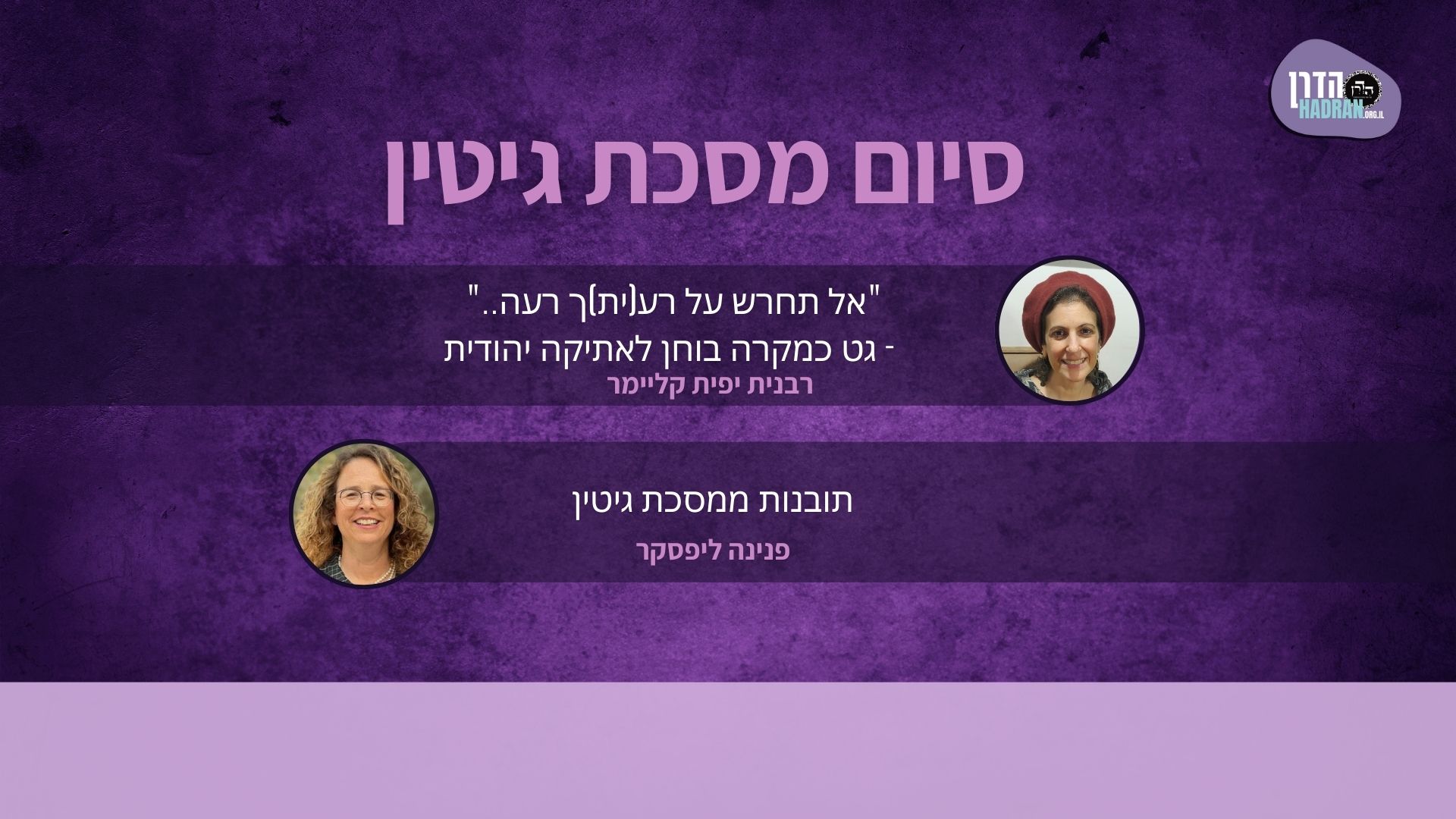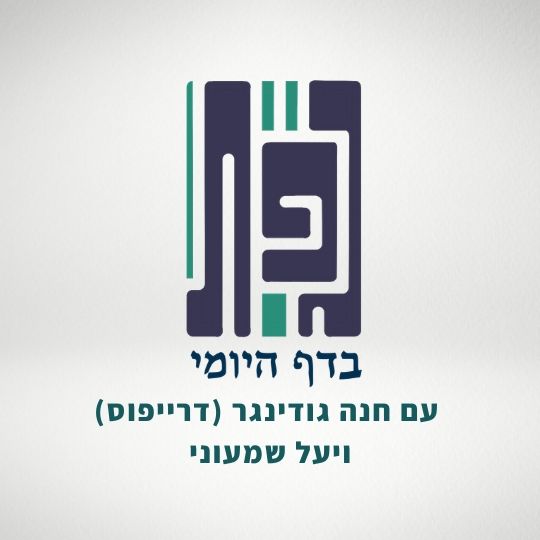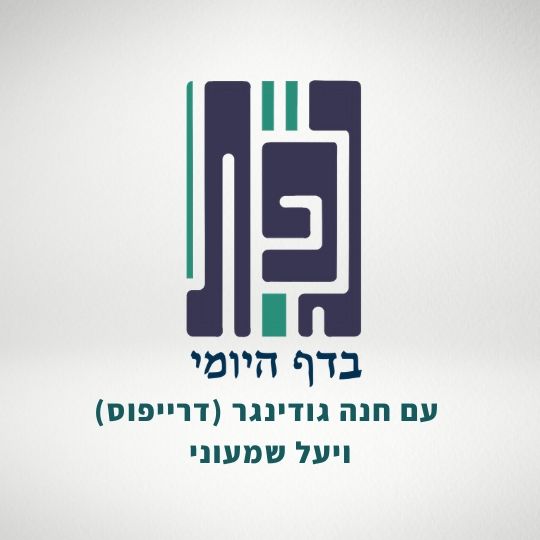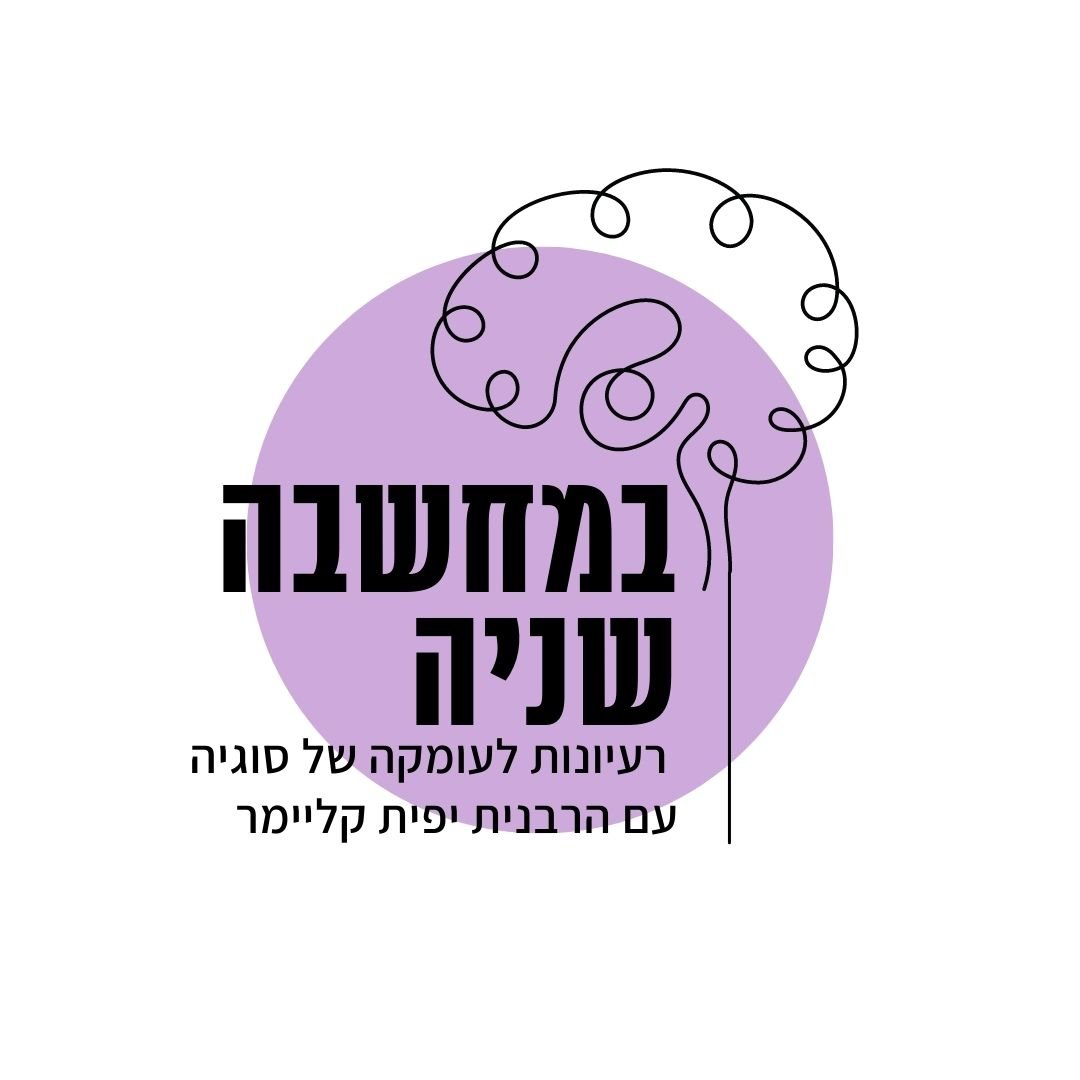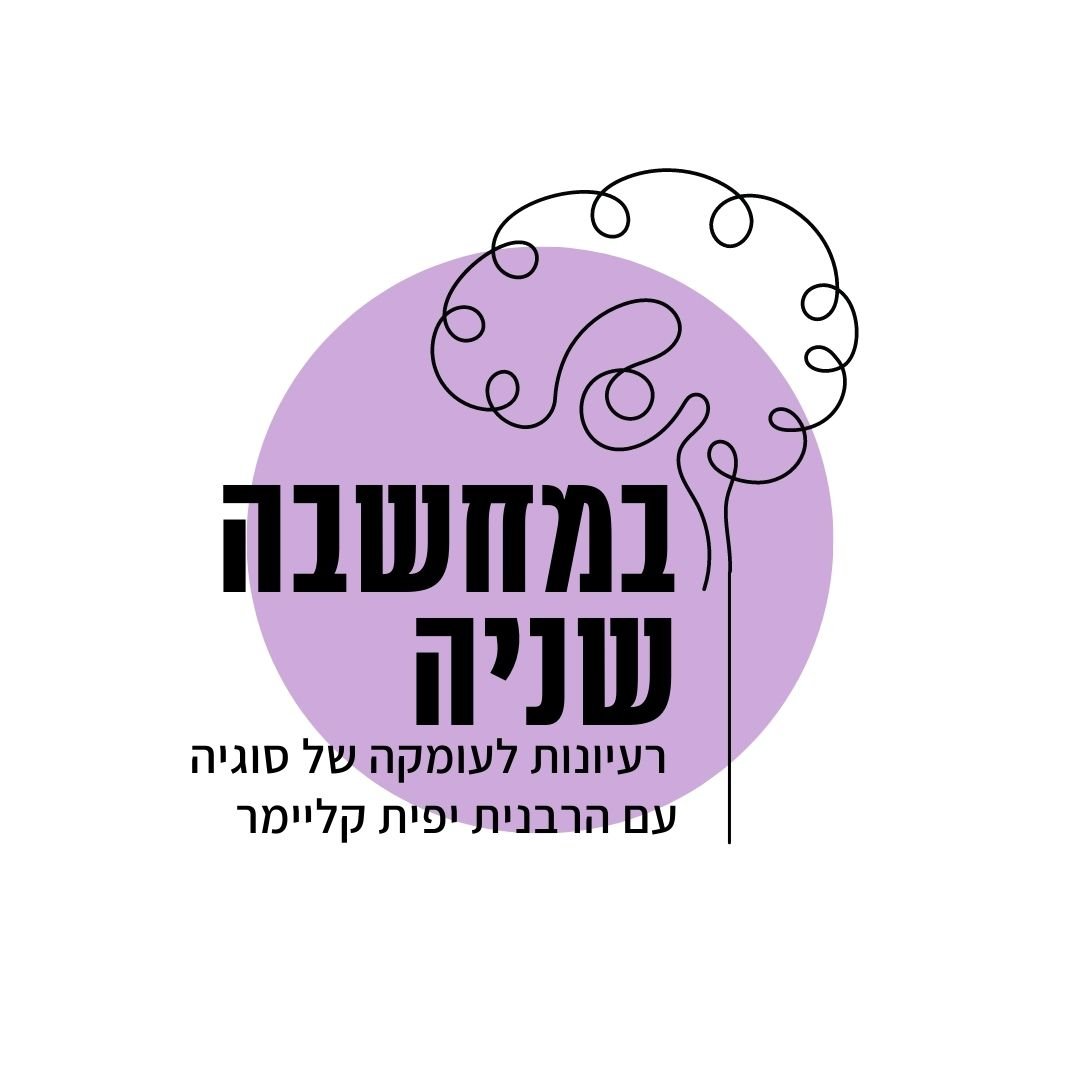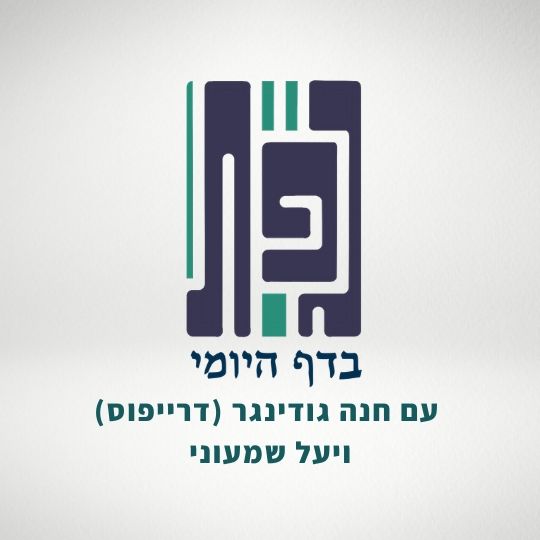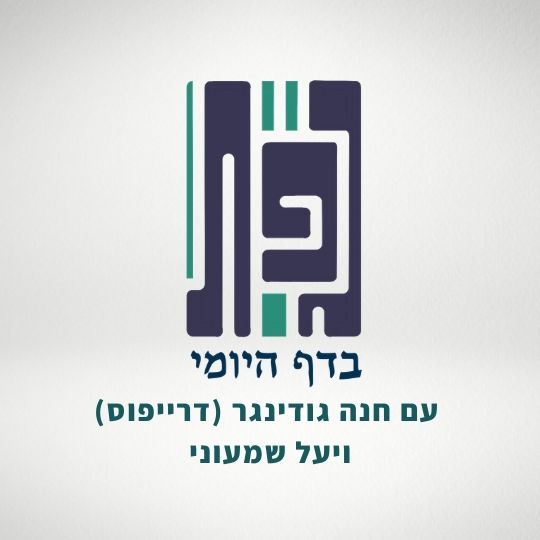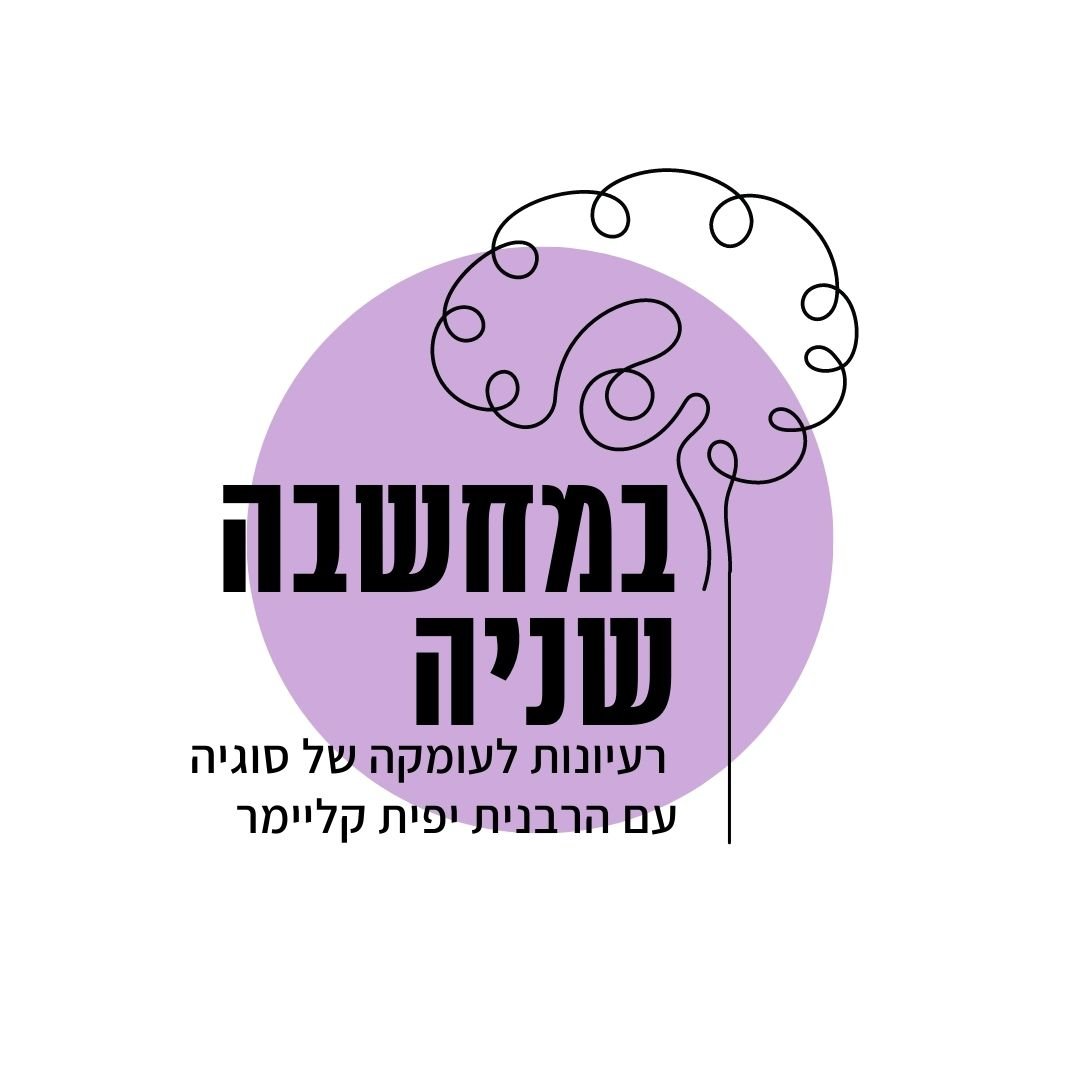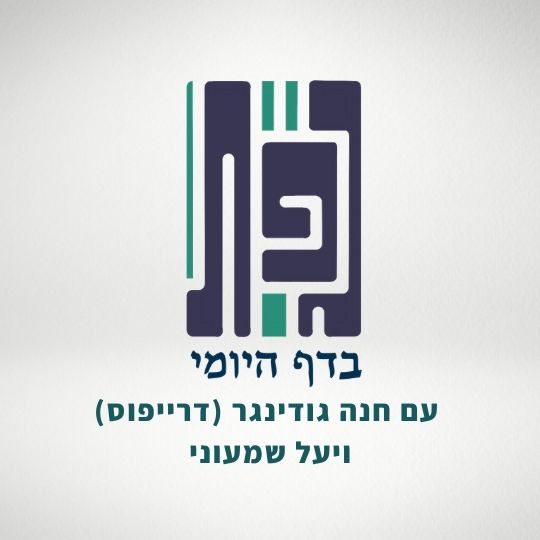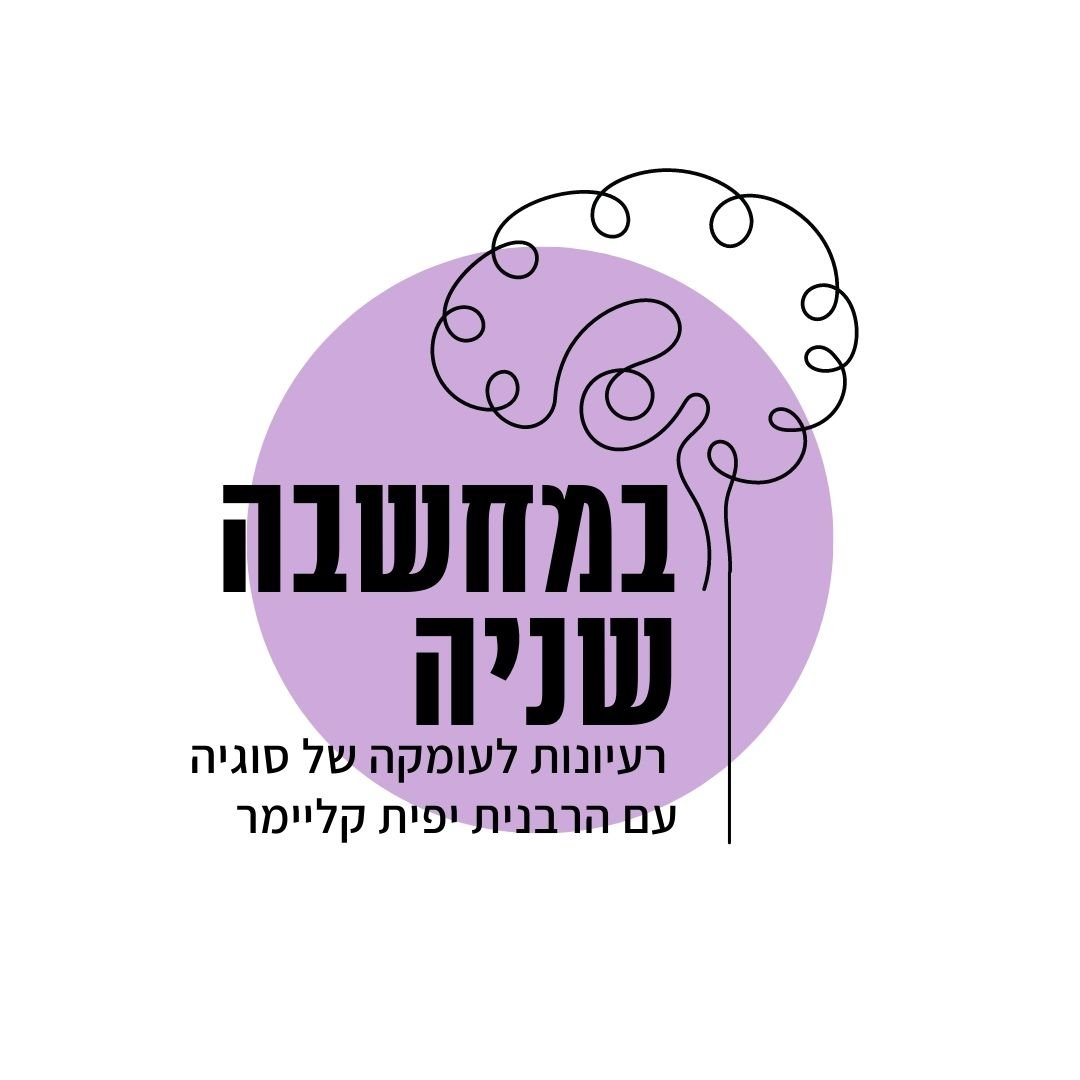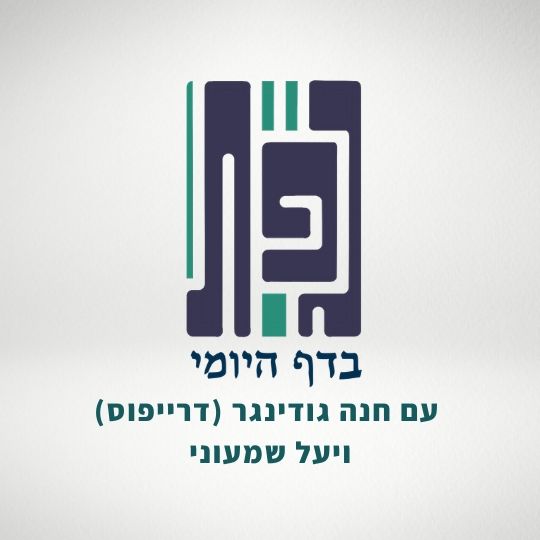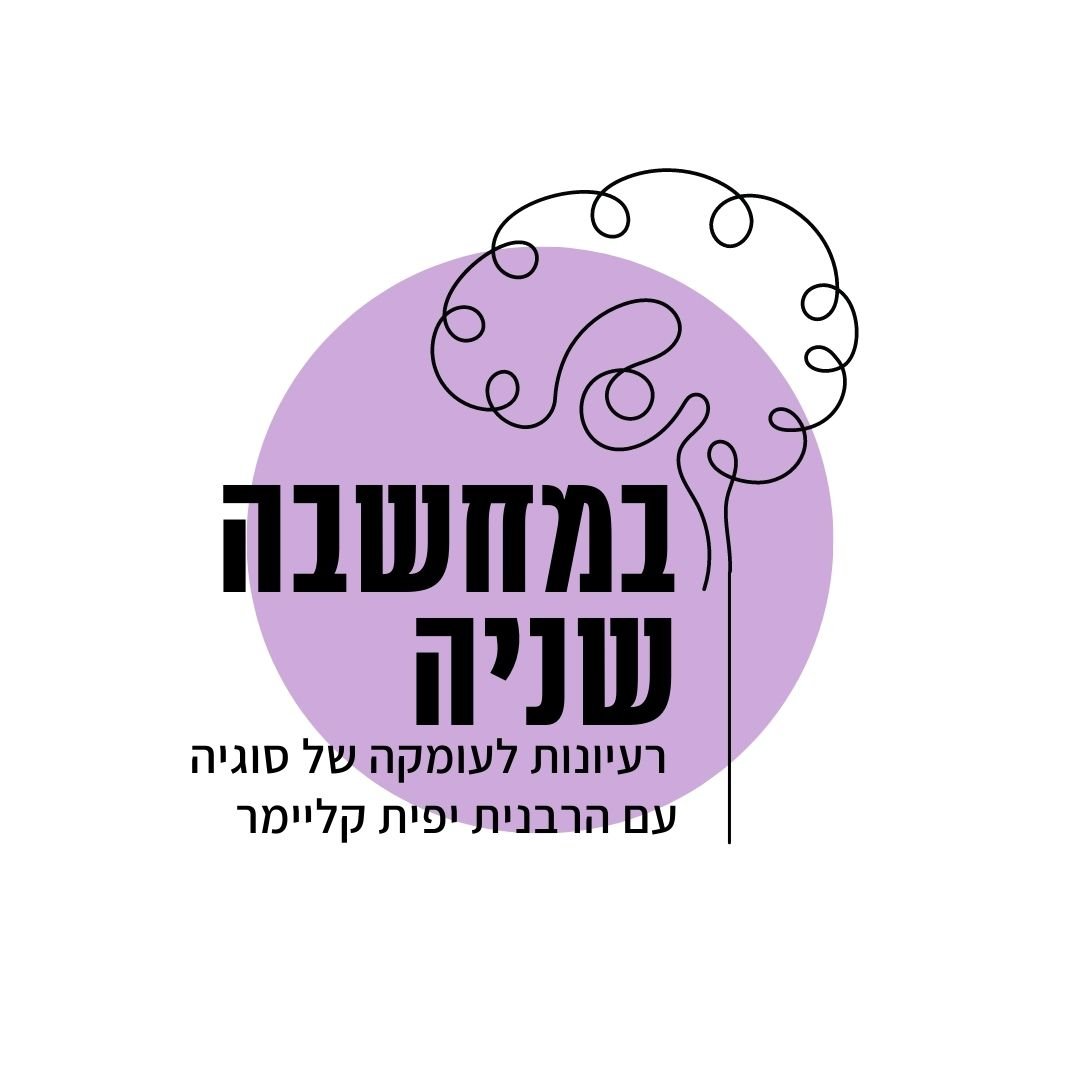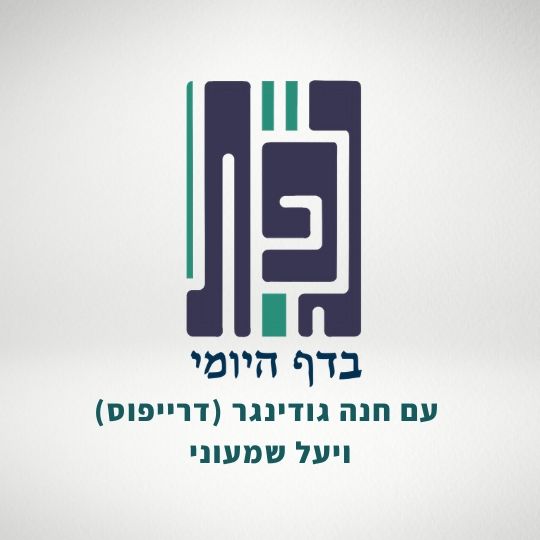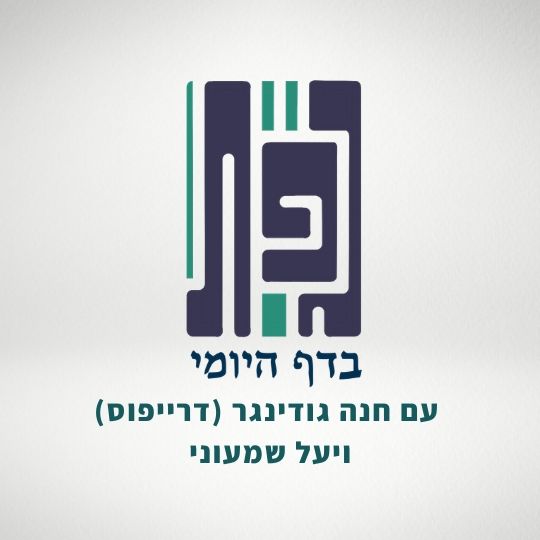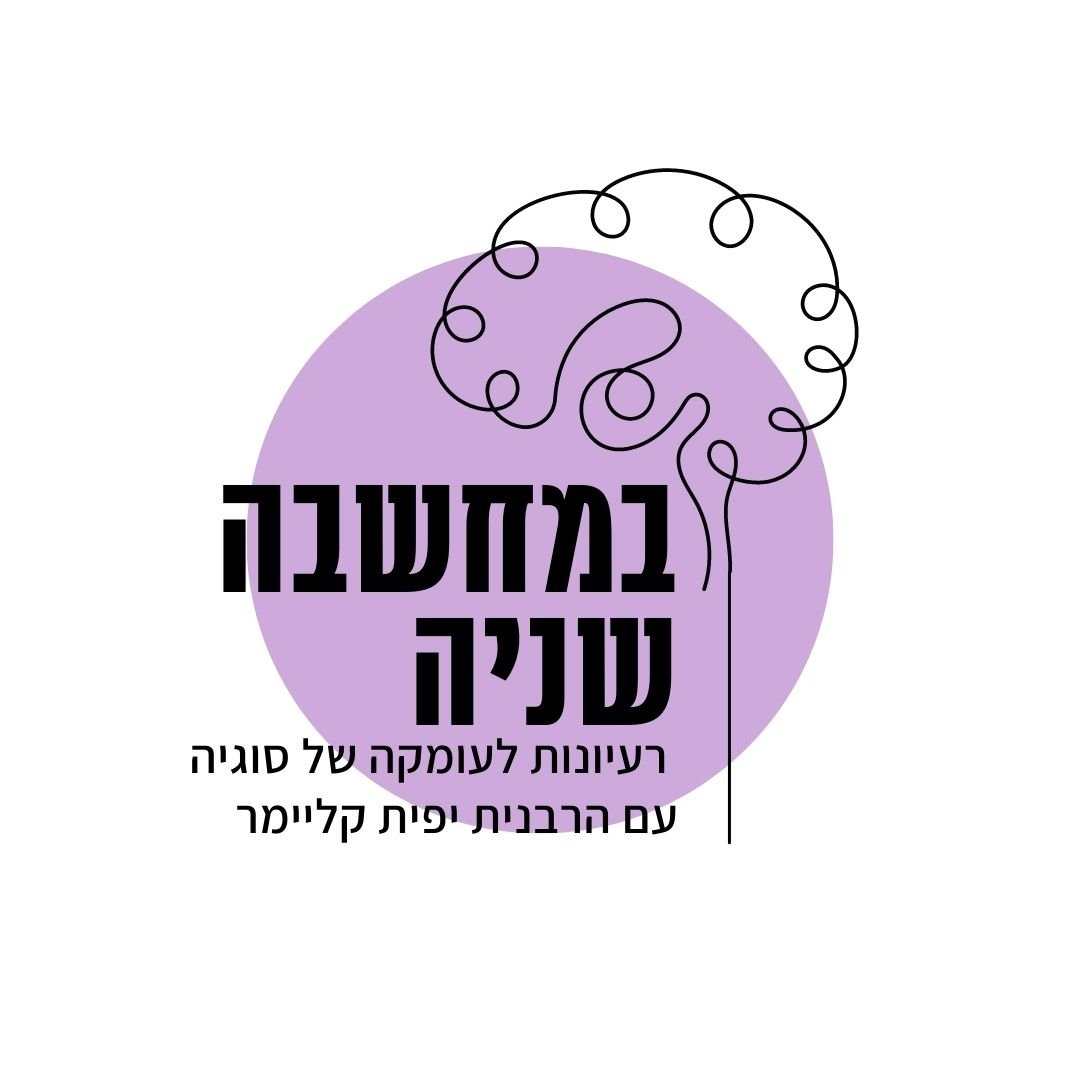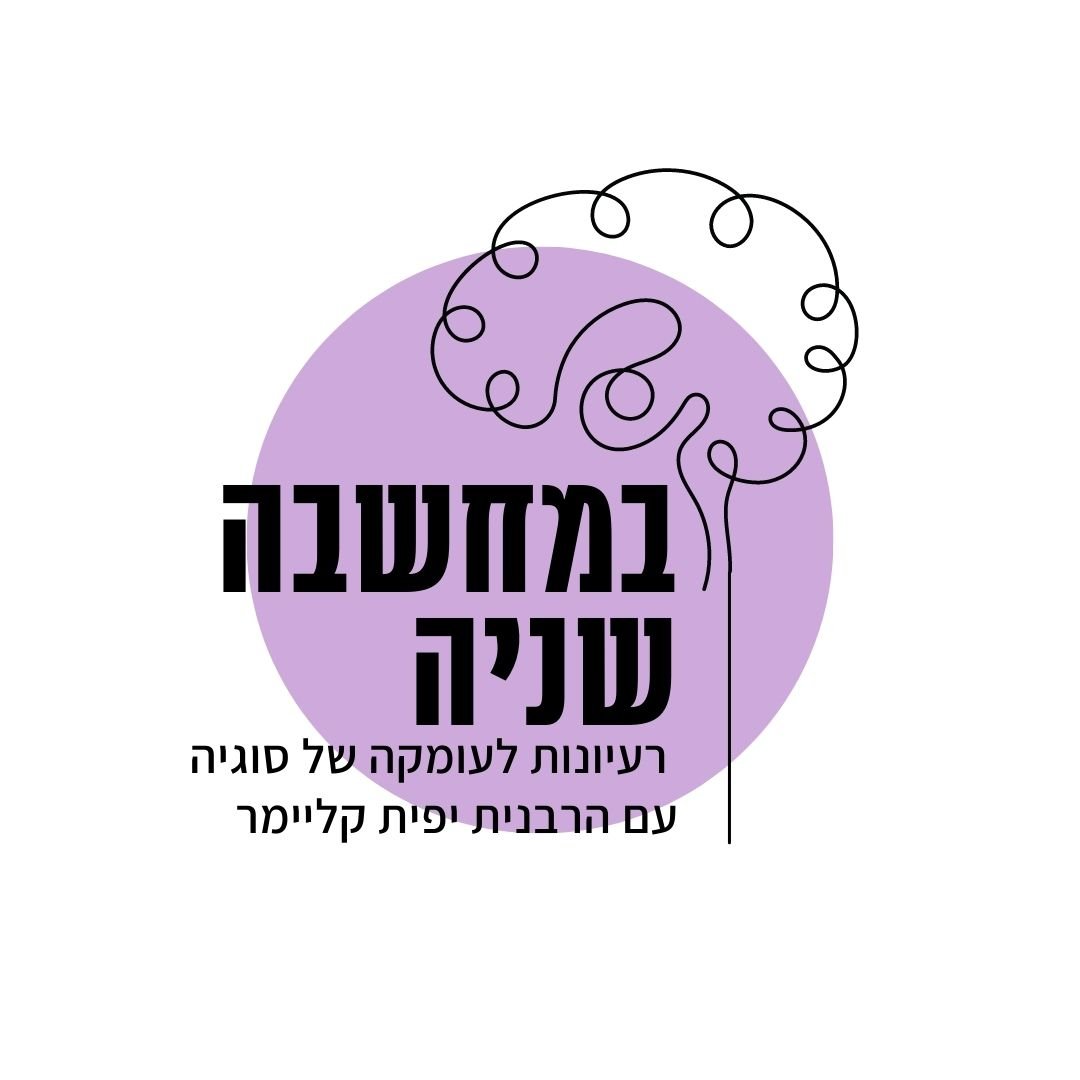בברייתא יש גירסה מורחבת יותר של הוויכוח בין רבי מאיר לחכמים – האם שחרור עבד זה רק טוב/זכות לעבד או שזה גם לרעתו/חובתו. אם אמר אחד לתת גט לאשתו או שטר שחרור לעבדו ואז הוא מת, לא היו נותנים את השטרך כיון שאי אפשר לתת שטר לאחר מיתה. אולם לגבי כסף, היו נותנים את הכסף גם אם הבעל מת. נמסר בשם רב שהכסף ניתן רק אם היה נמצא בערימה בפינה. הם מציעים שני הסברים שונים למגבלה של רב. רב זביד אומר שמדובר באדם בריא וזה עובד כיון שנעשה בנוכחות שלושת האנשים הרלוונטיים, כפי שאמר רב במקום אחר שאם אחד אומר לשני לתת את כסף שהוא חייב לו לאדם שלישי, האדם השלישי קנה אותו אם ההצהרה נאמרה מול שלושתם. רב פפא אומר שמדובר באדם גוסס ואם הכסף לא היה בערימה, היה חשש שהוא מתכוון לכסף שהיה טמון איפשהו. למה כל אחד לא סבר כפי הסברו של השני? יש ויכוח לגבי דבריו של רב על מי שאומר לתת את הכסף שחייבים לו לאדם שלישי ואם זה נאמר בנוכחות שלושתם, הכסף נקנה לאדם השלישי. האם זה במקרה של פיקדון בלבד או גם בהלואה? נראה שרב קבע שדבריו חלים גם בהלוואה. איך זה עובד? אמימר מציע הסבר, אך רב אשי דוחה אותו.
הלימוד החודש מוקדש לרפואת פיליס הכט, גיטל פעשא בת מאשה רחל על ידי חברותיה הרבות שאוהבות ומעריכות אותה.
רוצה להקדיש שיעור?

כלים
הלימוד החודש מוקדש לרפואת פיליס הכט, גיטל פעשא בת מאשה רחל על ידי חברותיה הרבות שאוהבות ומעריכות אותה.
כלים
העמקה
רוצה להבין מה באמת קורה מתחת לפני השטח של הסוגיה?
שיעורים, פודקאסטים והרחבות של מיטב המורות שלנו יפתחו לך עוד זוויות וכיווני חשיבה.
חדשה בלימוד הגמרא?
זה הדף הראשון שלך? איזו התרגשות עצומה! יש לנו בדיוק את התכנים והכלים שיעזרו לך לעשות את הצעדים הראשונים ללמידה בקצב וברמה שלך, כך תוכלי להרגיש בנוח גם בתוך הסוגיות המורכבות ומאתגרות.
פסיפס הלומדות שלנו
גלי את קהילת הלומדות שלנו, מגוון נשים, רקעים וסיפורים. כולן חלק מתנועה ומסע מרגש ועוצמתי.
גיטין יג
״וּמָה אִילּוּ עֶבֶד כֹּהֵן שֶׁבָּרַח וְאֵשֶׁת כֹּהֵן שֶׁמָּרְדָה עַל בַּעְלָהּ – הֲלֹא אוֹכְלִים בִּתְרוּמָה; וְזֶה – אֵינוֹ אוֹכֵל״ –
And Rabbi Meir further said to the Rabbis: And what would be if there was the slave of a priest, who fled from his master, or the wife of a priest who rebelled against her husband, are they not permitted to partake of teruma, although not the teruma belonging to the master or husband? They are permitted to partake of teruma. But this slave who was emancipated may not partake of teruma at all, even teruma that belongs to other priests. Evidently, emancipation is to his detriment.
שַׁפִּיר קָאָמַר לְהוּ! אָמַר רָבָא: הַיְינוּ דְּקָא מַהְדְּרִי לֵיהּ בְּמַתְנִיתִין: מִפְּנֵי שֶׁהוּא קִנְיָנוֹ. דְּאִי בָּעֵי, שָׁקֵיל אַרְבָּעָה זוּזֵי מִיִּשְׂרָאֵל וּפָסֵיל לֵיהּ כֹּל הֵיכָא דְּאִיתֵיהּ.
The Gemara asks: If so, then Rabbi Meir is saying and responding well to the Rabbis. How do the Rabbis counter his claim? Rava said: This is what they answered and said to him in the mishna: The master can disqualify his slave from partaking of teruma in any event, because he is his master’s acquisition. The implication of this statement is the following: As, if the master desires to disqualify his slave from partaking of teruma after he has fled, he can take four dinars from any Israelite in exchange for the slave, and he thereby disqualifies him from partaking of teruma anywhere that he is located.
וּלְרַבִּי מֵאִיר – תִּינַח עֶבֶד כֹּהֵן, עֶבֶד יִשְׂרָאֵל מַאי אִיכָּא לְמֵימַר? אָמַר רַבִּי שְׁמוּאֵל בַּר רַב יִצְחָק: מִפְּנֵי שֶׁמַּפְסִידוֹ מִשִּׁפְחָה כְּנַעֲנִית.
The Gemara asks: And according to the opinion of Rabbi Meir, his explanation works out well with regard to the slave of a priest whose emancipation causes him to be disqualified from partaking of teruma, and therefore it is possible to argue that his emancipation is to his detriment. However with regard to the slave of an Israelite, what can be said? Rabbi Shmuel bar Rav Yitzḥak says: Emancipation is even to the detriment of a slave of an Israelite, because by freeing him his master causes him to lose the option of engaging in sexual intercourse with a Canaanite maidservant. Until this point it was permitted for him to engage in sexual intercourse with a Canaanite maidservant, but once he is emancipated these women are forbidden to him.
אַדְּרַבָּה, הֲרֵי הוּא מַתִּירוֹ בְּבַת חוֹרִין! עַבְדָּא בְּהֶפְקֵירָא נִיחָא לֵיהּ – זִילָא לֵיהּ, שְׁכִיחָא לֵיהּ, פְּרִיצָה לֵיהּ.
The Gemara raises a difficulty: On the contrary, by emancipating him the master renders it permitted for him to engage in sexual intercourse with a free woman. The Gemara answers: In the case of a slave, a life of licentiousness is preferable for him. Therefore, he would rather have the right to engage in sexual intercourse with a Canaanite maidservant, as she is lowly to him, she is available for him, she is unrestricted for him. None of these descriptions apply to a Jewish woman, and therefore he loses out on the benefit he could have received from being permitted to engage in sexual intercourse with a Canaanite maidservant. Consequently, Rabbi Meir maintains that his emancipation is to his detriment.
מַתְנִי׳ הָאוֹמֵר ״תְּנוּ גֵּט זֶה לְאִשְׁתִּי, שְׁטַר שִׁחְרוּר זֶה לְעַבְדִּי״, וּמֵת – לֹא יִתְּנוּ לְאַחַר מִיתָה. ״תְּנוּ מָנֶה לְאִישׁ פְּלוֹנִי״, וּמֵת – יִתְּנוּ לְאַחַר מִיתָה.
MISHNA: In the case of one who says: Give this bill of divorce to my wife, or: Give this bill of manumission to my slave, and then he dies, one does not give it after his death. The reason for this is that bills of divorce and manumission must be transferred by the husband or the master. Once he has died the document can no longer be given, and the agency he appointed for this purpose is likewise canceled. However, if he said: Give one hundred dinars to so-and-so, and then he died, one does give the recipient the money after his death.
גְּמָ׳ אָמַר רַב יִצְחָק בַּר שְׁמוּאֵל בַּר מָרְתָּא מִשְּׁמֵיהּ דְרַב: וְהוּא שֶׁצְּבוּרִין וּמוּנָּחִין בְּקֶרֶן זָוִית.
GEMARA: Rav Yitzḥak bar Shmuel bar Marta says in the name of Rav: And this ruling, that one gives the one hundred dinars after the death of the owner, is the halakha only when those dinars are piled up and placed in a corner at the time of the command.
בְּמַאי עָסְקִינַן? אִילֵימָא בְּבָרִיא, כִּי צְבוּרִין מַאי הָוֵי? הָא לָא מְשַׁךְ! וְאֶלָּא בִּשְׁכִיב מְרַע, מַאי אִירְיָא צְבוּרִין? כִּי אֵין צְבוּרִין נָמֵי, דְּהָא קַיְימָא לַן דְּדִבְרֵי שְׁכִיב מְרַע – כִּכְתוּבִים וְכִמְסוּרִין דָּמוּ!
The Gemara asks: With what are we dealing? If we say that we are dealing with a healthy person who instructs others to give one hundred dinars, then when they are piled, what of it? After all, the recipient did not pull the money, and one must perform an act of acquisition to take possession of movable property. Rather, say that we are dealing with a person on his deathbed, in which case verbal instructions suffice. However, if that is so, why does this halakha apply specifically when the money is piled? The same should be the case when the coins are not piled as well, as we maintain that the statement of a person on his deathbed who distributes his property is considered as though it were written and delivered. If so, no other act of acquisition should be necessary.
אָמַר רַב זְבִיד: לְעוֹלָם בְּבָרִיא, וְכִדְרַב הוּנָא אָמַר רַב – דְּאָמַר רַב הוּנָא אָמַר רַב: ״מָנֶה לִי בְּיָדְךָ, תְּנֵהוּ לוֹ לִפְלוֹנִי״, בְּמַעֲמַד שְׁלָשְׁתָּן – קָנָה.
Rav Zevid says: Actually, the mishna is dealing with a healthy person, and this ruling is in accordance with that which Rav Huna says that Rav says. As Rav Huna says that Rav says: With regard to one who says to another: I have one hundred dinars in your possession; give it to so-and-so, if this occurred in the presence of all three parties, that third person has acquired it. This type of acquisition applies only to money that is similar to a deposit, e.g., piled money.
רַב פָּפָּא אָמַר: לְעוֹלָם בִּשְׁכִיב מְרַע, וּכְאִידַּךְ דְּרַב – דְּאָמַר רַב: שְׁכִיב מְרַע שֶׁאָמַר ״תְּנוּ מָנֶה לִפְלוֹנִי מִנְּכָסַי״; ״מָנֶה זֶה״ – נוֹתְנִין, ״מָנֶה״ סְתָם – אֵין נוֹתְנִין,
Rav Pappa said: Actually, the mishna is dealing with a person on his deathbed, and it is in accordance with another ruling of Rav, as Rav says: With regard to a person on his deathbed who said: Give one hundred dinars to so-and-so from my property, the halakha depends on his precise wording. If he said: Give him this one hundred dinars, where the money is in a particular place, one gives the money to him. However, if he merely said: One hundred dinars, without specification, one does not give it to him.
חָיְישִׁינַן שֶׁמָּא מָנֶה קָבוּר קָאָמַר.
Why does one not give the one hundred dinars if he did not add further specification? We are concerned that perhaps he spoke about a buried one hundred dinars. In other words, he might have been referring to a specific one hundred dinars whose location is unknown, and he did not intend to give him any other money. For this reason, Rav explains that the mishna is referring to money piled up in a designated place, which the one who gives the instruction is referring to explicitly.
וְהִלְכְתָא: לִקְבוּרָה לָא חָיְישִׁינַן. רַב פָּפָּא מַאי טַעְמָא לָא אָמַר כְּרַב זְבִיד?
The Gemara comments: And the halakha is that we are not concerned about a buried sum of one hundred dinars, i.e., the halakha is not in accordance with the opinion of Rav. The Gemara asks: What is the reason that Rav Pappa did not say an explanation that is in accordance with that of Rav Zevid with regard to Rav’s statement?
קָסָבַר רַב פָּפָּא, כִּי אָמַר רַב – לָא שְׁנָא בְּמִלְוֶה, וְלָא שְׁנָא בְּפִקָּדוֹן.
The Gemara answers: Rav Pappa holds that when Rav said that a transfer in the presence of all three parties is effective, it is no different if this is referring to a loan from the first party to the second party, where it is an abstract monetary obligation that is transferred, and it is no different if it is referring to a deposit, where specific money is transferred. Just as the transfer is effective in the case of a loan, in which there is an abstract monetary obligation, it would be effective even if the money were not piled. For this reason, Rav Pappa explained that the mishna is referring to piled money due to the concern about a collection of a buried one hundred dinars.
רַב זְבִיד מַאי טַעְמָא לָא אָמַר כְּרַב פָּפָּא? לָא מִיתּוֹקְמָא מַתְנִיתִין בִּשְׁכִיב מְרַע. מִמַּאי? מִדְּקָתָנֵי: ״הָאוֹמֵר תְּנוּ גֵּט זֶה לְאִשְׁתִּי וּשְׁטַר שִׁחְרוּר זֶה לְעַבְדִּי״, וּמֵת – לֹא יִתְּנוּ לְאַחַר מִיתָה.
The Gemara asks the reverse question: What is the reason that Rav Zevid did not say in accordance with the explanation of Rav Pappa? The Gemara answers: He holds that it is not possible to establish the mishna as referring to a person on his deathbed. From where does he learn this? It is from the fact that it teaches: In the case of one who says: Give this bill of divorce to my wife, or: Give this bill of manumission to my slave, and then he dies, one should not give it after his death.
טַעְמָא דְּמֵת, הָא מֵחַיִּים – נוֹתְנִין; טַעְמָא דְּאָמַר ״תְּנוּ״, הָא לֹא אָמַר ״תְּנוּ״, אֵין נוֹתְנִין; וּשְׁכִיב מְרַע – אַף עַל גַּב דְּלָא אָמַר ״תְּנוּ״, נוֹתְנִין.
The Gemara infers: The reason for this ruling is that the man died. However, if it was while he was still alive then one gives the document. The Gemara continues: Even during his lifetime the reason for the ruling is specifically that he said: Give, but if he did not say: Give, and merely commanded: Write a bill of divorce, then one does not give it. But this is not the case with regard to a person on his deathbed, as, although he did not say: Give, but simply commanded: Write, nevertheless, one gives the document. Evidently, this halakha cannot be referring to a person on his deathbed.
דִּתְנַן, בָּרִאשׁוֹנָה הָיוּ אוֹמְרִים: הַיּוֹצֵא בְּקוֹלָר, וְאָמַר ״כִּתְבוּ גֵּט לְאִשְׁתִּי״ – הֲרֵי אֵלּוּ יִכְתְּבוּ וְיִתְּנוּ. חָזְרוּ לוֹמַר, אַף הַמְפָרֵשׁ וְהַיּוֹצֵא בִּשְׁיָירָא.
As we learned in a mishna (65b): Initially the Sages would say: With regard to one who is taken out in a neck chain to be executed and said: Write a bill of divorce for my wife, these people should write and give her the document. Although he did not explicitly say: Give, this is understood to have been his intention. They then said that this halakha applies even to one who sets sail and one who departs in a caravan to a far-off place. A bill of divorce is given to his wife under these circumstances even if her husband said just: Write.
רַבִּי שִׁמְעוֹן שֵׁזוּרִי אוֹמֵר: אַף הַמְסוּכָּן.
Rabbi Shimon Shezuri says: Even in the case of one who is dangerously ill who gives that instruction, they write the bill of divorce and give it to his wife. This shows that a dying person need not say: Give. Rather, it is sufficient for him to say: Write. By contrast, the mishna indicates that it is referring to one who says: Give, and therefore it is certainly not speaking about a dying person.
מַתְקֵיף לַהּ רַב אָשֵׁי: וּמַאן נֵימָא לַן דְּמַתְנִיתִין רַבִּי שִׁמְעוֹן שֵׁזוּרִי הִיא? דִּלְמָא רַבָּנַן הִיא!
Rav Ashi objects to this claim: And who says to us that the mishna is in accordance with the opinion of Rabbi Shimon Shezuri? Perhaps it is in accordance with the opinion of the Rabbis, who did not include a dangerously ill person in their list of those who are not required to say: Give. If so, it is possible that the mishna is referring to a person on his deathbed after all.
גּוּפָא – אָמַר רַב הוּנָא אָמַר רַב: ״מָנֶה לִי בְּיָדְךָ, תְּנֵהוּ לוֹ לִפְלוֹנִי״, בְּמַעֲמַד שְׁלָשְׁתָּן – קָנָה. אָמַר רָבָא: מִסְתַּבְּרָא מִילְּתֵיהּ דְּרַב בְּפִקָּדוֹן, אֲבָל בְּמִלְוָה – לֹא.
The Gemara discusses the matter itself. Rav Huna says that Rav says: With regard to one who says to another: I have one hundred dinars in your possession; give it to so-and-so, if this occurred in the presence of all three parties, that third person has acquired it. Rava said: It stands to reason that Rav’s statement is with regard to a deposit, when the owner of the deposit instructs its guardian to transfer specific money under his authority to someone else who is also present. However, in the case of a loan, no, one cannot dispense with an act of acquisition, as repayment of a loan does not involve specific money.
וְהָאֱלֹהִים! אָמַר רַב: אֲפִילּוּ בְּמִלְוָה. אִתְּמַר נָמֵי, אָמַר שְׁמוּאֵל מִשְּׁמֵיהּ דְּלֵוִי: ״מִלְוָה לִי בְּיָדְךָ, תְּנֵהוּ לוֹ לִפְלוֹנִי״, בְּמַעֲמַד שְׁלָשְׁתָּן – קָנָה.
Rava himself adds, in the form of an oath: But by God, in truth, Rav said this halakha even with regard to a loan. The Gemara adds: It was also stated that Shmuel said in the name of Levi that if someone says to another: I have a loan in your possession, i.e., you owe me payment for a loan, give it to so-and-so, and this occurred in the presence of all three parties, that named person has acquired it.
וְטַעְמָא מַאי? אָמַר אַמֵּימָר: נַעֲשָׂה כְּאוֹמֵר לוֹ בִּשְׁעַת מַתַּן מָעוֹת: שַׁעְבַּדְנָא לָךְ לְדִידָךְ וּלְכֹל דְּאָתוּ מֵחֲמָתָךְ.
The Gemara asks: And what is the reason for this? In what manner does he acquire it? Ameimar said: The case becomes like that of a borrower who says to a lender at the time of the giving of the money, when he receives a loan: I am beholden to you and to anyone who comes based on your authorization. In this case, the recipient is authorized by the lender to take the loan in the presence of all three parties.
אֲמַר לֵיהּ רַב אָשֵׁי לְאַמֵּימָר: אֶלָּא מֵעַתָּה, הִקְנָה לַנּוֹלָדִים – דְּלָא הֲווֹ בִּשְׁעַת מַתַּן מָעוֹת, הָכִי נָמֵי דְּלָא קָנוּ?!
Rav Ashi said to Ameimar: If that is so, that the borrower’s obligation to the third party went into effect at the time of the loan, then if he transferred it in the presence of the three parties to those who will be born, i.e., people who were not yet born when the money was initially given, the halakha should also be that the recipients do not acquire it. The reason is that at the time the lender gave the money to the borrower, the person to whom it would eventually be transferred did not yet exist, and therefore the borrower could not have become obligated to him at that point in time.
דַּאֲפִילּוּ לְרַבִּי מֵאִיר, דְּאָמַר אָדָם מַקְנֶה דָּבָר שֶׁלֹּא בָּא לָעוֹלָם, הָנֵי מִילֵּי לְדָבָר שֶׁיֶּשְׁנוֹ בְּעוֹלָם, אֲבָל לְדָבָר שֶׁאֵינוֹ בָּעוֹלָם – לָא!
Rav Ashi elaborates: As, even according to the opinion of Rabbi Meir, who says that a person can transfer ownership of an entity that has not yet come into the world, this statement applies only when he transfers it to an entity, i.e., a person, that has come into the world. However, even Rabbi Meir agrees with regard to the transfer of ownership of an article to an entity that has not yet come into the world, that this is not possible. Since Rav issued his statement in a general manner without any limitations, evidently the method of a transfer in the presence of all three parties applies in all cases, regardless of whether the third party was born at the time when the loan was given.
אֶלָּא אָמַר רַב אָשֵׁי:
Rather, Rav Ashi says that this is the reason for the matter:
